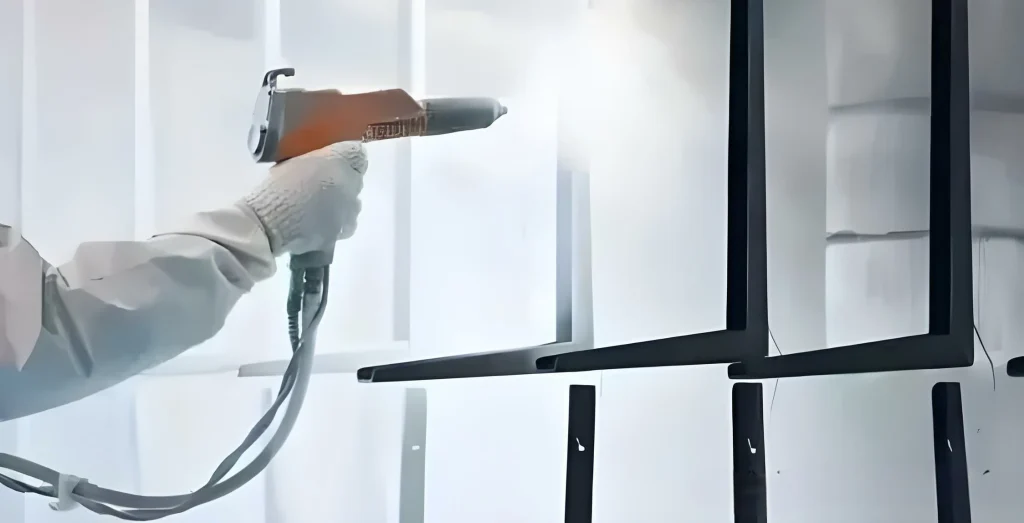Powder Coating vs Paint: Which Finish is Best for Commercial Metal Parts? | Welleshaft
1.Why Finishing Matters for Metal Parts
In industrial manufacturing, the right surface finish determines product longevity, corrosion resistance, and visual appeal. Among the most popular cast aluminum finishes, powder coating and painting stand out as two of the most widely used methods. But which one is better for your commercial metal parts? This comprehensive guide from Welleshaft, your trusted metal parts finishing partner, provides expert insights to help you make the right choice for durability, appearance, and cost-efficiency.
2.What is Powder Coating?
Powder coating is a dry finishing process where powdered thermoplastic or thermoset polymer is electrostatically applied to metal parts and then cured under heat to form a hard, protective finish.
(1)Key Features:
No solvents or VOCs
Durable and uniform coating
Multiple colors and textures available
3.What is Paint for Metal Surfaces?
Industrial paint involves applying a liquid solution (oil-based, enamel, or epoxy) to the surface of a metal part. It dries via evaporation or chemical curing.
(1)Key Features:
Easier for touch-ups or field repairs
More affordable for low-volume applications
Wide availability in spray and brush form
4.How Powder Coating Works (Process Overview)
- Pre-treatment: Cleaning, sandblasting, or degreasing metal surfaces
- Powder Application: Using electrostatic spray guns
- Curing: Heating the part in a curing oven at 160–210°C (320–410°F)
- Cooling and Quality Inspection
5.How Painting Works (Process Overview)
- Surface Prep: Cleaning or priming
- Application: Spraying, rolling, or brushing
- Drying/Curing: Air-dried or heat-cured depending on the paint
6.Powder Coating vs Paint: A Comparison Table
| Feature | Powder Coating | Paint |
| Durability | High | Medium |
| Finish Thickness | 60–80 µm | 30–50 µm |
| Rust Protection | Excellent | Moderate |
| VOC Emissions | None | Often present |
| Outdoor Lifespan | 10–20 years | 2–5 years |
| Touch-Up Ease | Difficult | Easy |
| Application Cost | Higher upfront | Lower upfront |
7.Which is More Durable: Powder Coating or Paint?
Powder coating forms a thicker, more impact-resistant shell. It resists scratching, chipping, and corrosion much better than paint, especially for outdoor or heavy-duty applications. Paint may degrade faster under UV exposure, moisture, and salt spray.
8.Environmental Impact and VOCs
Powder coating is considered more environmentally friendly:
- Contains no volatile organic compounds (VOCs)
- Overspray can be reclaimed and reused
- Compliant with global environmental standards (e.g., RoHS, REACH)
Paint, especially solvent-based types, emits VOCs and may require disposal as hazardous waste.
9.Cost Differences in Commercial Applications
- Powder Coating: Higher initial investment (equipment + curing), but better lifecycle value due to reduced maintenance.
- Paint: Lower initial cost, but more frequent recoating and touch-ups required over time.
10.Best Uses by Industry
| Industry | Recommended Finish |
| Automotive Parts | Powder Coating |
| HVAC Housings | Paint or Powder |
| Agricultural Equipment | Powder Coating |
| Construction Hardware | Powder Coating |
| Marine Applications | Paint (with anti-corrosive additives) |
11.People Also Ask
(1)What lasts longer: powder coating or paint?
Powder coating lasts 10–20 years, while paint lasts around 2–5 years.
(2)Is powder coating worth the extra cost?
Yes, especially in terms of corrosion resistance and long-term savings.
(3)Can powder coating prevent rust?
Yes. It forms a continuous barrier against moisture and oxygen.
(4)Can I paint over powder coating?
Yes, with proper surface prep like sanding or scuffing.
12.Why Choose Welleshaft for Your Coating Needs?
At Welleshaft, we don’t just coat metal—we protect your reputation. Here’s what sets us apart:
(1)Technical Capabilities
Advanced powder coating booths with multi-color switching
Infrared and convection curing ovens
In-house salt spray, adhesion, and impact resistance testing
(2)Certifications
ISO 9001:2015 Quality Management
RoHS and REACH Compliance
ASTM D3359, D3363, and ISO 2409 standards followed
13.Real Customer Use Cases
- USA HVAC Client: Switched from paint to powder for outdoor housings—reduced field failure rates by 70%
- UK Automotive Tier 2 Supplier: Powder coating applied to brake hardware to pass salt spray tests over 500 hours
14.Application Scenarios
- Commercial HVAC enclosures
- Machine frames and control panels
- Die-cast aluminum and zinc parts
- Garden and outdoor furniture
15.Why Clients Trust Welleshaft
- End-to-End Quality Controlfrom raw metal to finished part
- Customized Coating Services based on part geometry and usage environment
- Fast Turnaround with automated lines and efficient logistics
This article is authored by Welleshaft’s surface engineering team, combining technical insight with real-world application experience in metal finishing.

